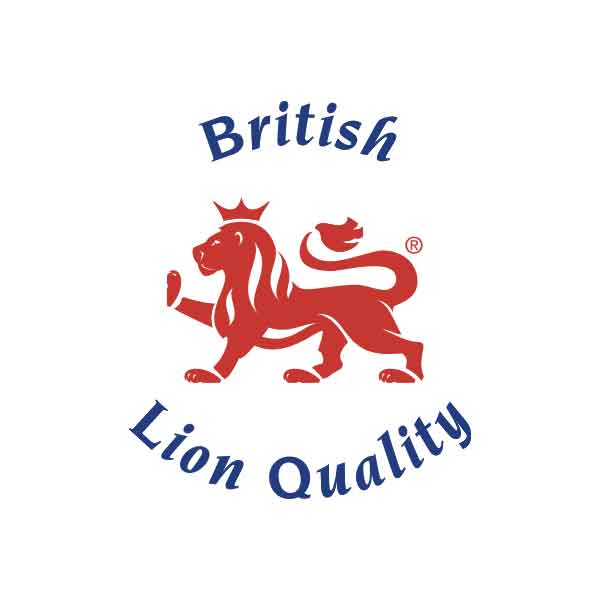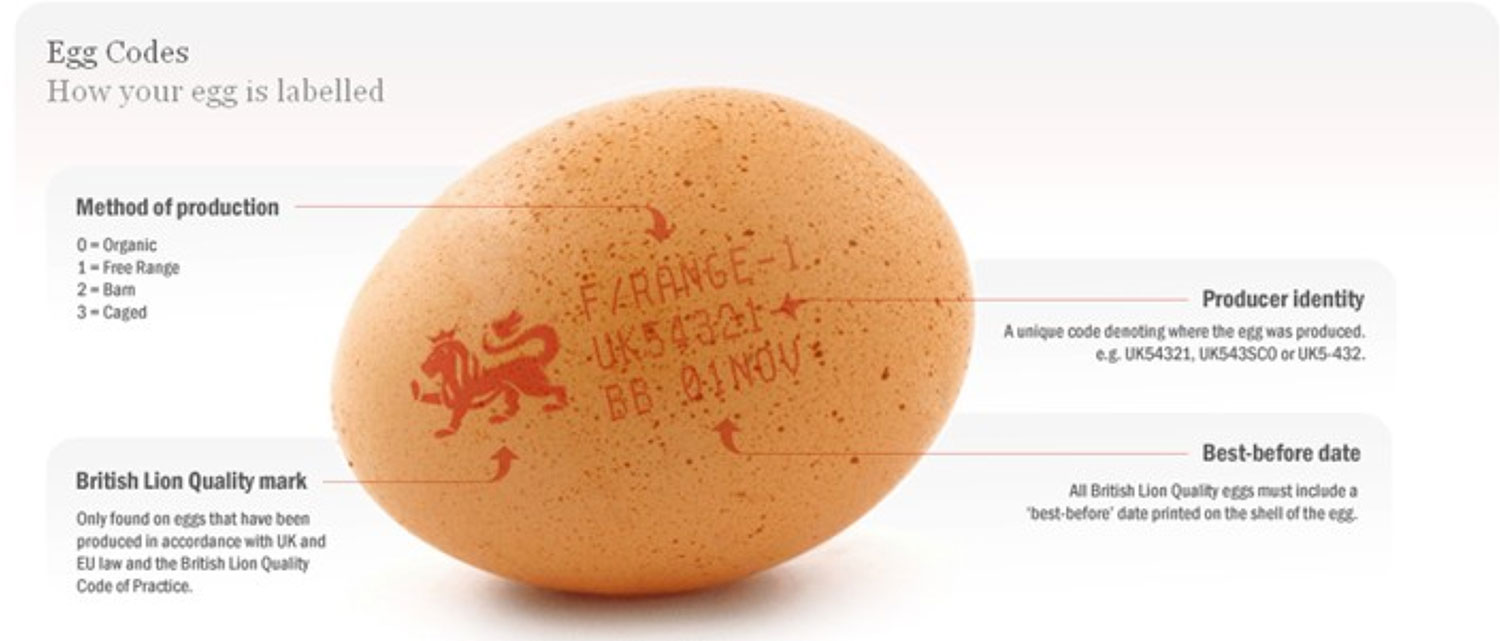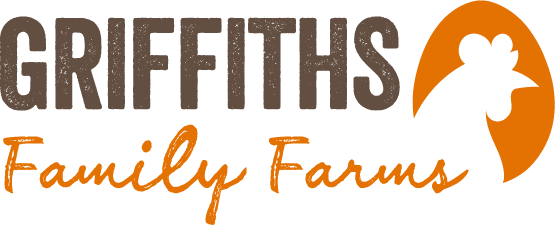Lion Code of Practice
Griffiths Family Farms is a main supported of the British Lion Quality mark and guarantees eggs produced by their own farm and the farms of the external producers, all carry the stamp of approval.

What does the Quality Mark mean?
The Lion Quality mark on egg shells and boxes means that the eggs have been produced to standards of hygiene and animal welfare greater than those required by UK or EU law. Standards for Lion Quality eggs include vaccination of Lion egg-producing flocks against Salmonella, a ‘best before’ date on eggs and egg packs which show that they are fresher than required by law and fully traceable.
What must registered farms do to comply?
The Code of Practice for Lion Quality eggs covers breeding flocks and hatcheries; pullet rearing; laying birds, including both hygiene and animal welfare requirements; on-farm handling of eggs; distribution of eggs from farm; feed; hen disposal; packing centre procedures; advice to retailers, consumers and caterers; environmental policy and enforcement.
In order for Griffiths Family Farms to be Lion Quality approved, the following areas of production are strictly followed;
Registration and traceability
All Lion Quality hen flocks must be accompanied by a passport certificate and all Lion Quality egg movement has to be fully traceable.
Breeding flock controls
Hygiene controls for breeding flocks and hatcheries include hygiene swabbing of hen houses, regular microbiological monitoring of parent flocks and hatcheries, with slaughter of any flocks positive for salmonella-enteritidis or salmonella-typhimurium, and heat/acid treatment of feed.
Pullet farms/vaccination programme
All birds destined for Lion Quality egg-producing flocks are vaccinated against Salmonella enteritidis using an approved vaccine. A full hygiene monitoring programme including hygiene swabbing must be completed by pullet rearers before birds are taken onto the farm. Rearing flocks are tested for salmonella and all equipment and vehicles used for transporting pullets to the laying unit must be disinfected. Records of bird movement, salmonella testing and control of wild birds and rodents must be kept on the passport.
Laying birds
The Code sets out detailed hygiene requirements for laying hens, including disinfection of farms between flocks; prevention of cross-infection; salmonella testing; control of wild birds and rodents and detailed record keeping.
Time and temperature controls on-farm
Lion Quality eggs are subject to tighter controls on time and temperature than required by law. Lion Quality eggs must be stored below 20°C in hygienic conditions on the farm. All Lion Quality eggs must be transported to the packing centre at least twice a week and must be kept at a constant temperature below 20°C.
Strict controls on feed
Feed for Lion Quality hens must be produced to the Agricultural Industries Confederation’s UFAS (Universal Feed Assurance Scheme) Code of Practice. Feed samples and records of deliveries and usage must be kept and measures taken to prevent on-farm contamination of feed. In addition to the UK legislative ban on ingredients derived from mammalian sources, avian ingredients are also prohibited from feed for Lion flocks.
Packing centre hygiene
Written HACCP controls must be in place at Lion Quality egg packing centres and traceability of product and records must be kept at all times. Packing centres must ensure all eggs supplied are from approved producers. Written cleaning schedules and rodent control procedures must be in place. Effective crack and blood detection must be used in the grading of Lion Quality eggs.
'Best before' date and Lion Quality mark on shell
Lion Quality eggs must carry a ‘best before’ date on the shell and on the pack. All Lion eggs must be graded with a best-before date of up to 25 days from pack (for in-line operations up to 27 days from pack), subject to such eggs meeting a maximum life of lay + 27 days, making them fresher than required by law. They must also carry the Lion Quality mark on the shell.
Advice to retailers, consumers and caterers
Retail customers must be advised that Lion Quality eggs should be stored at a constant temperature below 20°C, away from heat sources and sunlight. They should be sold in strict rotation. On catering premises and in the home, eggs should be stored, preferably in their packs, in a refrigerator.
Environmental policy
All Lion Quality egg subscribers must develop their own environmental policy especially in regard to manure disposal, disposal of dead birds, wastage and environmental impact on the community.
Animal welfare
The Code includes a number of animal welfare requirements which exceed those required by law. These include the banning of induced moulting, additional staff training procedures and procedures for the handling of end-of-lay hens in accordance with the Joint Industry Welfare Guide to the Handling of End of Lay Hens and Breeders.
Independent auditing
All Lion Quality registered premises are inspected and approved by an independent monitoring agency. BEIC maintains up-to-date lists of Lion Quality packing centres, laying farms, rearing farms, hatcheries, breeding farms and feed mills. On supply of details of these premises to the BEIC, certificates of registration are issued to the premises involved. Each subscriber is responsible for a self-audit of his own and contracted premises every six months. There are also two audits every 18 months, one of which is unannounced, of each Lion Quality egg packing centre by the independent monitoring agency. Every Lion farm is also independently audited, including random unannounced audits.
To find out more about the Lion Code of Practice go to:
egginfo.co.uk
How are my Griffiths Family Farms eggs labelled?

